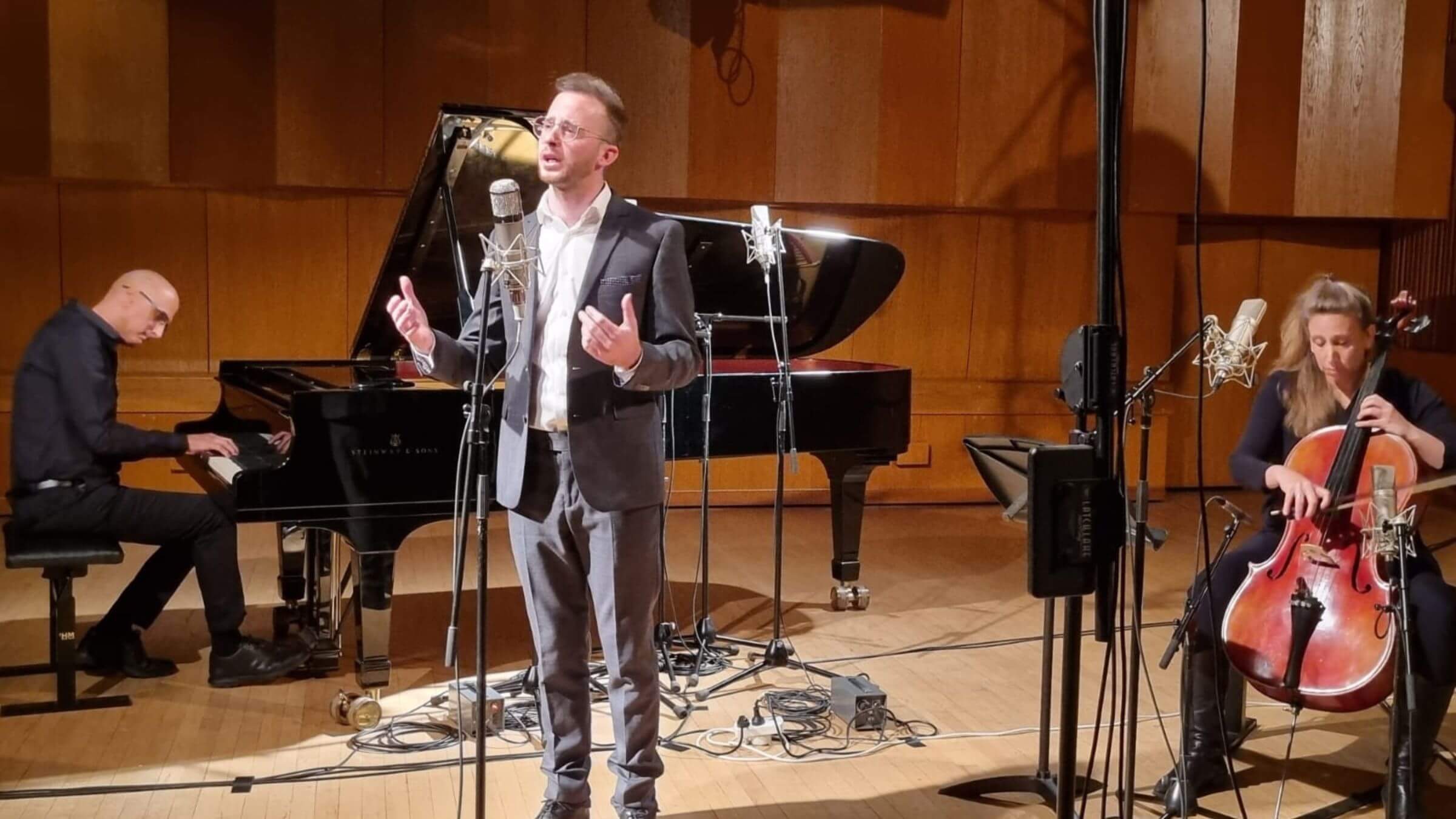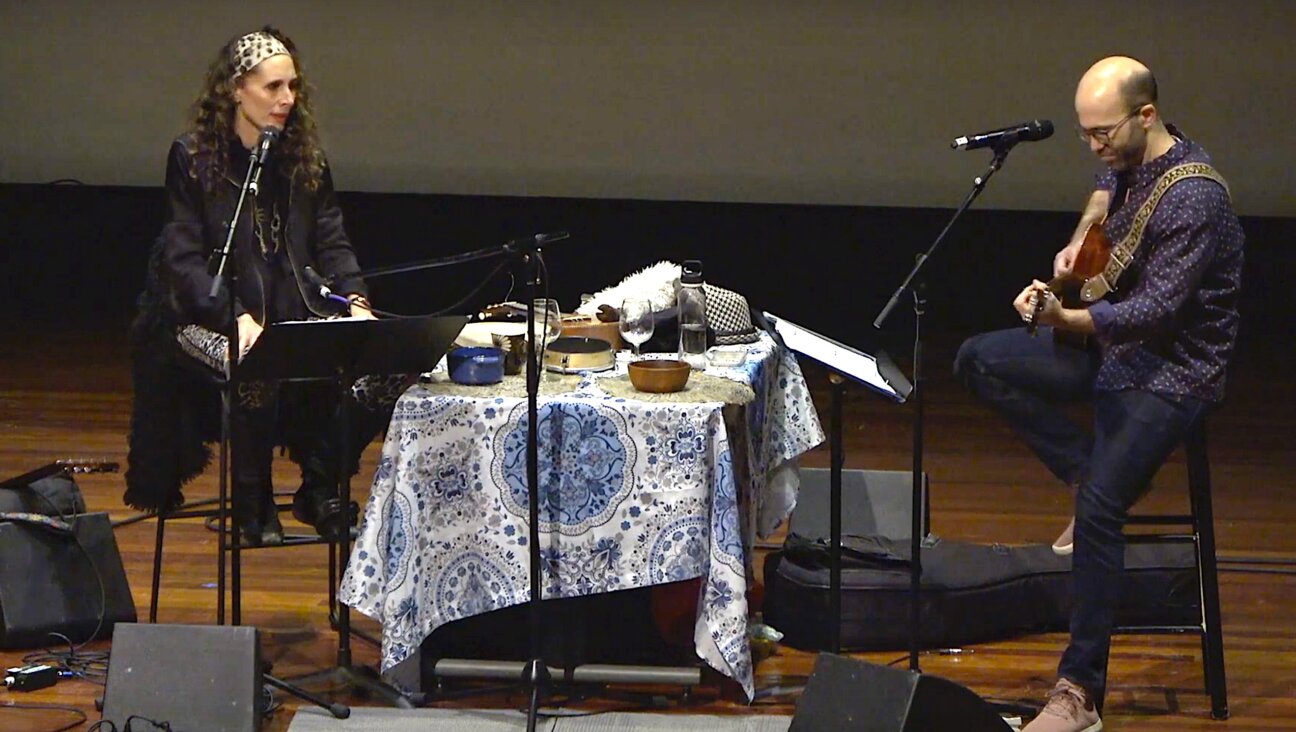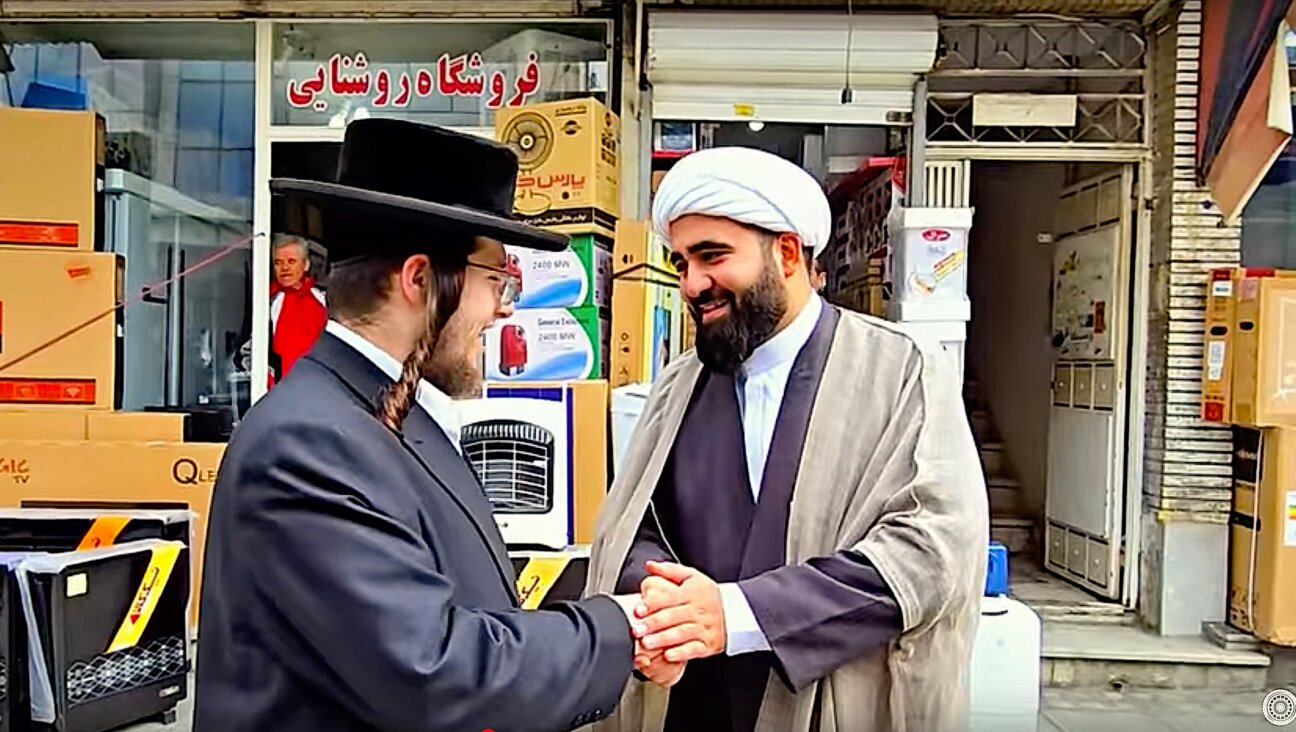‘Bring Him Home’ from ‘Les Miz’ has new meaning in Israel. Now there’s a Yiddish version.
The song is the result of close teamwork between a secular choir director and a former Hasid

From left: Avi Silas, Eliezer Henig and Netta Yekutiel Courtesy of Avi Silas
After October 7th, a musical number from “Les Misérables” rocketed in popularity in Israel.
Soloists from the Israeli Opera in Tel Aviv recorded “Bring Him Home” in late October as an expression of solidarity with the hostages captured by Hamas. The Chief Cantor of the IDF, Shai Abramson performed it at the March of the Living in Poland in December for Yom HaShoah.
For decades,“Bring Him Home,” in which Jean Valjean, the protagonist, prays for his prospective son-in-law Marius to stay safe when joining the French revolutionaries fighting at the barricades, has moved audiences with its theme of self-sacrificing, unconditional love. “If I die, let me die. Let him live. Bring him home,” Valjean sings. In Israel, the yearning to bring Marius home safe extends to all those who are still held by Hamas in Gaza.
Most of these performances in Israel have been in English and Hebrew. But perhaps unexpectedly, there was one in Yiddish, too.
Last December, at the Jerusalem Music Center, tenor Eliezer Henig sang “Tsu zayn heym,” accompanied by Avi Silas on the piano and Netta Yekutiel on the cello. The Yiddish version was written by Ze’ev Klein. Both Henig and Klein were raised in the Hasidic community.
Though this performance had been planned before Oct. 7, it took on new urgency in the months afterward. Silas, a choir director from the town of Lachish south of Jerusalem who shepherded the project, began practicing at his house in July 2023. But after Yekutiel and Henig were evacuated due to the war, they resumed rehearsing at the Ramat Rachel hotel in Jerusalem.
Silas said he was motivated both by the message of bringing home the hostages, as well as his connection with Yiddish. “It was for the love of the language,” he said.
He began studying Yiddish during the COVID pandemic in 2021, which inspired him to meet ex-Hasidim, like Henig, who Silas met at the Beit Shalom Aleichem Yiddish cultural center in Tel Aviv.
These young ex-Hasidim often came from overseas. Silas practiced his Yiddish with them, and taught them Hebrew in exchange.
Silas became especially close with Ze’ev Klein after meeting him in Jerusalem, who had not yet transitioned out of Haredi life.
Silas and Klein became bridges to each other’s worlds — Klein became fluent in Hebrew and more immersed in Israeli life, while Silas’ connection to Yiddish and the Hasidic culture grew. “Ze’ev introduced me to the culture, the music, the singers, the poets and the tunes of the whole Hasidic world,” Silas said.
Silas eventually asked Klein to translate “Bring Him Home” into Yiddish.
“I took the Hebrew, English and German versions, and I started to translate, though I didn’t have experience,” Klein said.
The end result contained elements from all three, resulting in many derivations in meaning from the familiar English version. In Klein’s translation, “If I die, let me die. Let him live. Bring him home,” became “Groyser got, her mayn shtim, nem mir shoyn, anshtot im” (“Great God, hear my voice. Take me, instead of him”).
“I’m very, very proud of Ze’ev’s work.” Silas said.
























